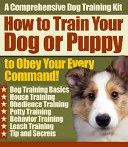Good Dog Training Advice
Get Fast & Simple Dog Training Tips to
Turn a Difficult Dog Into an Obedient Pet!
Adding Essential Fatty Acids to Your Pet's Diet
Fatty acids are derived from fat available in a dog's diet. These fatty acids combine with glycerol in order to form the triglycerides (simple fats). Fatty acids can be saturated or unsaturated. Fatty acids that cannot be synthesized in the body in sufficient amount are known as essential fatty acids. These essential fatty acids are unsaturated and are grouped into two: - Omega 6: These include linoleic acid (LA), Arachidonic acid (AA), Gamma linolenic acid (GLA), Dihomogamma linolenic acid (DGLA), - Omega 3: Includes Alpha linolenic acid (ALA),Eicosapentaenoic acid (EPA), Docosahexaenoic acid (DHA) The quantity of these fatty acids will vary in various preparations. Most companies incorporate large amounts of omega 6 fatty acids. This means that there is less omega 3 fatty acids in dog food and there might be a need to supplement. A deficiency of these fatty acids may lead to hair loss, dermatological conditions and increase risk of infection. While these deficiencies are rare they may occur in some dogs suffering from conditions that interfere with the absorption of the fatty acids from the intestinal surface such as mal-absorption or impaired pancreas. There are great benefits to supplementing your dog’s diet with essential fatty acids - They have been shown to be very effective in alleviating itching and inflammation of skin in dogs suffering from atopic dermatitis - They help improve coat making it shiny and smooth - Has a soothing effect on irritated skin - Reduces epidermal peeling, thus less shedding. You can supplement using marine fish oil and primrose oil. Fish oil is a rich source of EPA and DHA making it very effective in countering inflammation. Primose oil on the other hand is a good source of the omega 6 fatty acids. Primose oil should however be used cautiously in epileptic animals since it may worsen the condition. Dogs that cannot tolerate fish oil should not be supplemented with other oils. Since these fatty acids are polyunsaturated adding them to the diet will increase the demand for antioxidants to remove the free radicals. Thus if you plan on supplementing the fatty acids ensure that the dog’s diet is also rich in vitamin E. Commercial preparations of essential fatty acids are available and include - Coatex (vetplus): Capsules or liquid. Contains DHA 10.7mg, LA 190 mg, GLA 110 mg and EPA 154mg/mL. Also has added vitamins and minerals. - Complederm (Virbac): Liquid preparation. Contains DHA(docosahexanoic acid)4.5 mg, EPA(eicosahexapentanoic acid)6.75mg,GA (gamolenic acid) 2.02 mg and LA(linoleic acid) 460mg/mL. - GSL Efa coat oil. This is available as an over the counter medication. It is administered in drop form with a dog being given about 8drops - Nutriderm(ceva): DHA 12 mg, GA 40 mg, LA 300 mg and EPA 18 mg. This is available in capsule form with dogs being given a maximum of two capsules daily. Side effects of the oils are not common but may occur and present as vomiting and transient diarrhea. To avoid these effects incorporate the oil in food to make it easier for them to be absorbed. Just a reminder, make sure you check out the free dog life saving video below, you'll be so glad that you did: | |
|


Discover the Secrets to Training Your Dog Or Puppy. Huge BONUSES for a limited time only!
Click here now...
|
http://GoodDogTrainingAdvice.com






